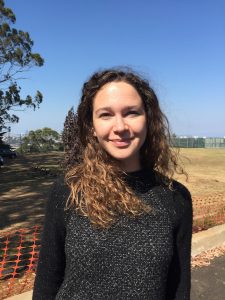Audio Academy Alums Report On Helping Homeless and Making Snap Judgment at Standing Rock
By Ben Trefny, News Director, KALW Public Radio
The Oakland warehouse fire dominated our thoughts last week. Deep condolences to all the victims, their friends and families, along with the Bay Area arts community on the whole. Many of the people who take part in and work with KALW‘s Audio Academy are part of that community; personally, one of my son’s schoolmates from the Ruth Asawa School of the Arts in San Francisco died. As a news department and a voice of the community, we will cover the changes sure to come from what seems like an avoidable tragedy and support those who have been affected.
That event overshadowed much of the other news that took place in the Bay Area, but we were still able to air several impactful stories by Audio Academy alums:
– We aired a series of pieces this week about people living in San Francisco’s single room occupancy hotels. Colin Peden (’15) did a great job recording these stories as part of a larger project to be displayed at the San Francisco Public Library in January, and these provide touching insights to people living on the social and economic margins of our society. Here are links to those pieces:
SRO Stories: I traded reality for the gay closet
SRO Stories: Nothing can jeopardize my sobriety
SRO Stories: I’m adapting to being around other people
– On Wednesday, we took part in the Bay Area’s 2nd media day of homelessness coverage. That included a powerful feature from Liza Veale (’15) expressing how detrimental homelessness is on people’s mental health:
Mental health issues are often a consequence – not a cause – of homelessness
– We also aired a listener-generated Hey Area story — this one about the Bay’s water quality — from Angela Johnston (’14):
Hey Area: Meet the team who monitors the water quality in the Bay
It turns out the water quality is “better than it used to be.”
—
Check in with Academy alum Liz Mak (’14):
Liz was part of the first Audio Academy class, and after graduation she continued working with our news department as a reporter and as a line producer. Earlier this year, she took a job with the nationally syndicated weekly show Snap Judgment based in Oakland. Here are some of her thoughts:
I started at Snap Judgment 4 months ago, which has been stretching my storytelling skills in all directions. It’s rigorous here: The workload is heavy, the attention to detail minute, and the standard incredibly high. So I’ve been particularly mindful lately of how what I’ve learned at KALW over the last three years set me up well to do the work that I do now. While I’ve made my fair share of mistakes being new to the job, it’s given me a boost of confidence knowing that, while I may be learning more of the particulars of Snap Judgment’s way of storytelling, I have a strong background in the fundamentals in reporting and interviewing.
A few weeks ago, I was sent to Standing Rock to find a story. For me, it was both a challenging and daunting task to be sent on my own and to come back with a story that fit Snap Judgment’s rather strict parameters. It was a challenging reporting environment, too, and in that time of pressure, I turned to my training from KALW — reminding myself that I’ve been sent to new environments countless times to speak with strangers and find their stories. It proved to be one of the most formative reporting experiences I’ve ever had. I’ve been learning that getting better as a storyteller and reporter doesn’t rely so much on gaining new skills as building on the fundamental ones I started nurturing from the beginning, at KALW.
—
Thoughts from current Academy fellow Claire Stremple:
Fledgling reporters rarely get so much attention as they do at KALW. Not that we’re coddled — the producers and engineers here are always busy working on pieces that seem to win awards on a weekly basis — but they always have time to answer even trivial questions. I think each of us fellows came to the Academy with a lot of ideas, and then found ourselves in a room surrounded by people in the business of turning ideas into actual things, and who approach that wild process with the calm, perfunctory manner of family doctors listening for a heartbeat first at the chest and then at the back. Or at least that’s how it looks from where I sit. Week by week, they pull back the curtain to reveal the complex mechanisms of reporting and storytelling. And each time a new process is uncovered, they approach it with the respect due to its difficulty, but a familiarity which lets us, sitting ankle deep in the baptismal waters of public radio, know that it’s not only possible, but imminent, and that we will do this thing, too, and soon. This week I sat with my mentor James in front of a screen that had my somewhat hacked-up edits of an interview on it. He listened, told me what he was thinking, and tightened up my work. Then he undid it, and let me do it with my hand, asking me if I heard the difference. I did. It was like reaching for something on a high shelf and getting an unexpected boost from behind. It sounded like I’d imagined it could.

